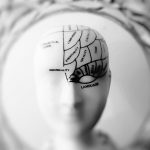More people than ever before can read, with literacy rates across the world continuing to grow. Since 1950, the literate population has grown from 56 people per 100 people to 86 people per 100 people. Despite this, the ability to read for pleasure (or to read at all) is something that western societies often take for granted.
Reading is an activity that some people do less of as they get older – especially with the advent of social media platforms and streaming services that have replaced our need for entertainment through print. Only 19% of people read for pleasure every day (according to a recent YouGov survey).
Already love to read? A creative writing course could be perfect for you.
How much should you read?
You might be asking how much you should be reading, especially if it isn’t currently a regular habit. The answer is that you should try to read a minimum of 30 minutes a day – so the time it’d take you to:
- binge an episode of a Netflix show
- watch 30 TikToks
- or fold and put away your laundry (and we know you want an excuse to put off doing that).
Don’t get us wrong, switching screens for books is no easy task if you haven’t had a reading routine for a long time – but the benefits are immense.
So, what are the benefits of reading?
1) Happier life
Believe it or not, research has proven that reading can be the key to happiness. Adults who read for 30 minutes a week are 20% more likely to report that they have greater satisfaction with their lives[i].
2) Longer life (apparently)
It sounds bizarre, but people who read for 30 minutes a day (3 ½ hours a week) have been found to live for two years longer than people who don’t read[ii]. This is a perfect motivation for those who want a longer life.
3) Better vocabulary
When you read, you naturally grow your vocabulary. This is because reading a book exposes you to new words or words you do not usually encounter in your day-to-day life. It also shows you how to use these words in different contexts. There are a ridiculous number of benefits to having a broader vocabulary, including being more confident and becoming a quicker, more competent writer.
Related: Techniques for growing & improving your vocabulary
4) Less stress
Reading gives your brain a chance to tune out of the ‘real life’ channel and into a calmer world. Physically, it lets your body completely relax, lowering your heart rate and stopping any muscle tension. In 2009, the University of Sussex conducted a study that found stress can be reduced by a massive 68% when you read[iii].
5) Improved memory
Keeping the brain active slows down cognitive decline as you get older, which means a better memory overall. When you are reading, you have to remember many facts about a character’s background, traits, personality, relationships and more. When you think about it, it is pretty impressive that your brain can retain specific and significant information[iv]
6) Better communication skills
Reading can improve both written and spoken communication skills – so it makes sense to build a reading habit if you struggle to communicate. As well as giving you something to talk about, it can help you understand things from different perspectives and makes it easier to have structured, well-rounded conversations. Writing-wise, the brain naturally picks up on the structure of paragraphs, storylines, and plots – which you may naturally begin to apply in your writing[v].
What happens when we don’t read?
Your brain is an important, complex machine that needs constant maintenance and oiling with knowledge. Much like a machine, if you take away the oil, your brain will rust up, and you might experience:
- Shorter attention span – because you are not constantly training your brain to concentrate for long periods, it begins to lose the skill, and you’ll find your mind wandering more frequently.
- Trouble sleeping and turning brain off – less stimulation throughout the day means your brain doesn’t get ‘tired’. Think of it this way, when you exercise, your body becomes tired, and you are much more likely to get better sleep. This works the same with your brain. If you do not exercise your mental capacity, it makes it much harder for your brain to turn off when it’s time to sleep or relax.
- Difficulties processing information – since you are not voluntarily feeding your brain information and preparing it to take information on board, your brain will struggle to process it. This might make you experience anxiety and restlessness.
How to read more
“If you don’t like to read, you haven’t found the right book.” – J.K. Rowling.
Reading habitually is difficult if you have never done it, or it’s a habit you haven’t had since your school days. Don’t fret, though; there are dozens of ways you can introduce reading into your daily routine.
- Don’t treat reading as a punishment! If you go into reading with a mindset that it is the worst thing ever, or as something you really don’t want to do, there is no way you’ll enjoy it. Some of us have a terrible relationship with reading from our childhoods, in which case you will need to try and reframe your relationship with it. Combine reading with your self-care routine and treat it as something you can do to help switch your brain off at the end of the day.
- Set realistic targets. You are not going to be able to read five chapters of a novel in one sitting from the get-go, so try setting realistic targets to begin with, such as reading for 15 minutes at a time or one chapter a day.
- Take a book everywhere. Some say they don’t read because they don’t have time for it, but most people have bags of untapped time. When you are on the bus, waiting for a friend, or at the dentist, you could be reading instead of scrolling through your phone.
- Listen to audiobooks. A passion for reading isn’t something that comes naturally to everyone. Audiobooks are the perfect way to expose yourself to books. Why not try interchanging reading a book at home with listening to it whilst out and about?
- Join a club. If you’re lucky enough to have a book club in the area, see if you can join it. It might seem daunting, but it’s the perfect way to push the boundaries of your mind as well as meeting new people who will support your reading.
- Add it into your existing routine. If you are a routine-lover, set time aside every day to read. This could be in the morning whilst you have your breakfast or at night before you go to bed.
- Choose a familiar topic. Familiar, fun topics will help you to engage with the book. Choose the book series of your favourite film or an autobiography of your favourite celebrity.
Reap the benefits of reading
The benefits of reading are vast, and it should be something everyone tries to do as frequently as possible. Get reading today to increase your brain power, grow your confidence and understand the power of the written word.
References
Marthin Satrya Pasaribu. (2019, March). Reading Improves Memory. Retrieved from https://medium.com/@marthinpsrb/reading-improves-memory-cf10604641e1
Quick Reads. (2021, April). Reading Between the Lines: The Benefits of Reading for Pleasure. Retrieved from https://manuscritdepot.com/documentspdf/Galaxy-Quick-Reads-Report-FINAL%20.pdf
Roser, M., & Ortiz-Ospina, E. (2018, September). Literacy. Retrieved from Our World in Data: https://ourworldindata.org/literacy
Slack, B. (2019). 5 ways reading will boost your communication skills. Retrieved from Lucidity: https://www.lucidity.org.uk/5-ways-reading-will-boost-your-communication-skills/
Taking Charge. (n.d.). Reading for Stress Relief. Retrieved from Taking Charge: https://www.takingcharge.csh.umn.edu/reading-stress-relief
Teresa Dumain. (n.d.). The 5 Ways Reading for 30 Minutes a Day Can Change Your Health. Retrieved from HealthiNation: https://www.healthination.com/health/benefits-of-reading/
Sources
[i] https://manuscritdepot.com/documentspdf/Galaxy-Quick-Reads-Report-FINAL%20.pdf
[ii] https://www.healthination.com/health/benefits-of-reading/
[iii] https://www.takingcharge.csh.umn.edu/reading-stress-relief
[iv] https://medium.com/@marthinpsrb/reading-improves-memory-cf10604641e1
[v] https://www.lucidity.org.uk/5-ways-reading-will-boost-your-communication-skills/








